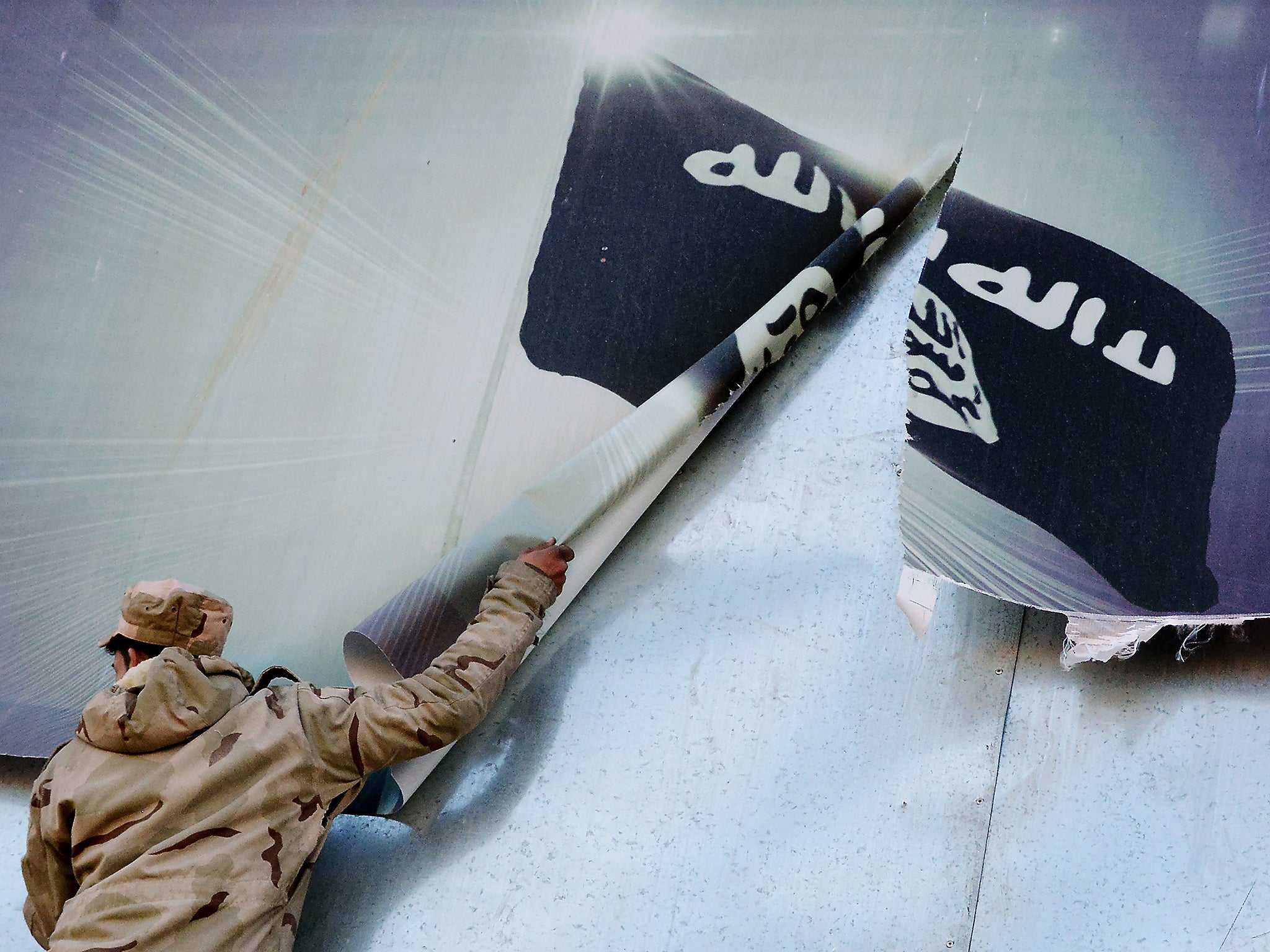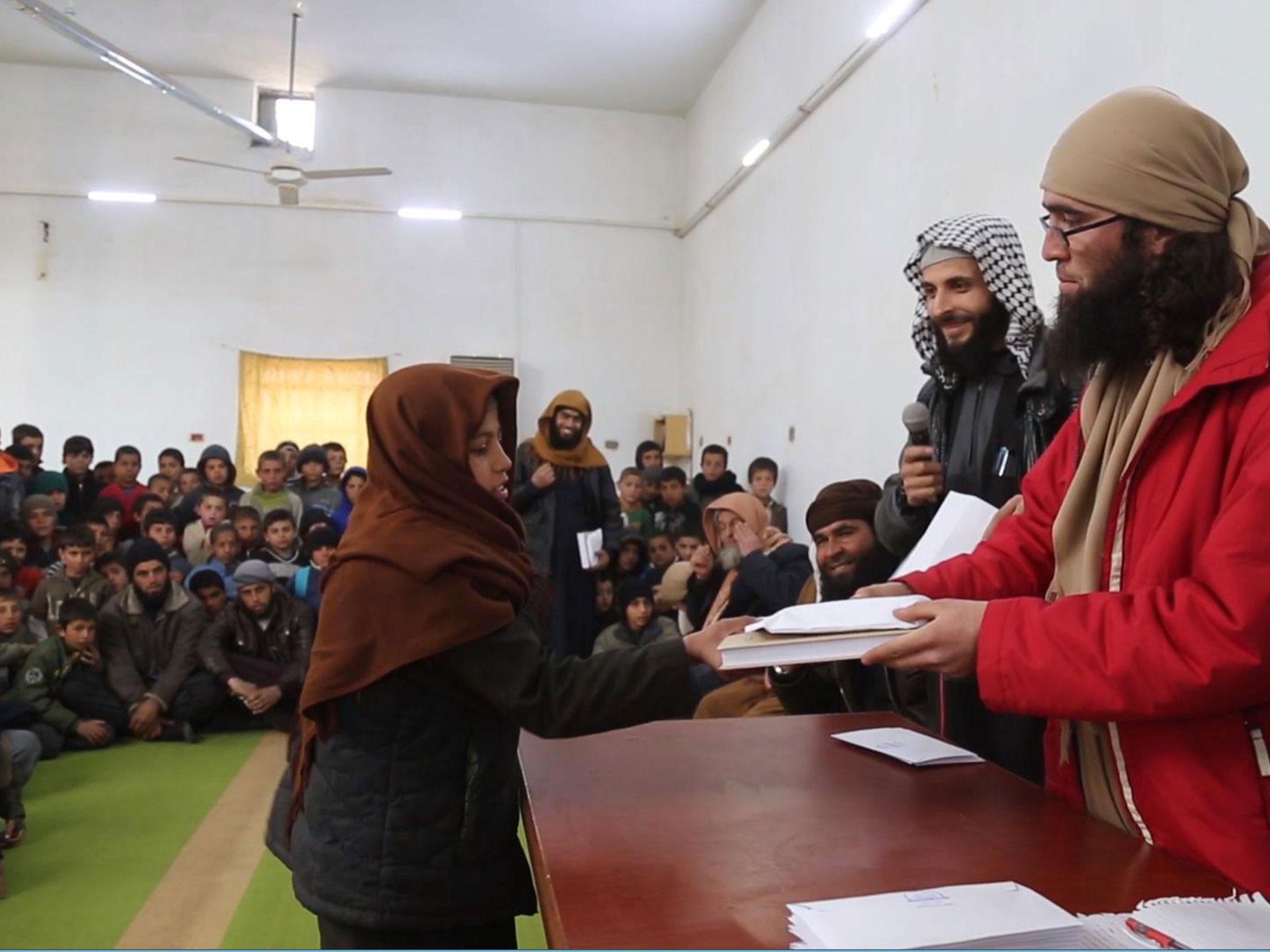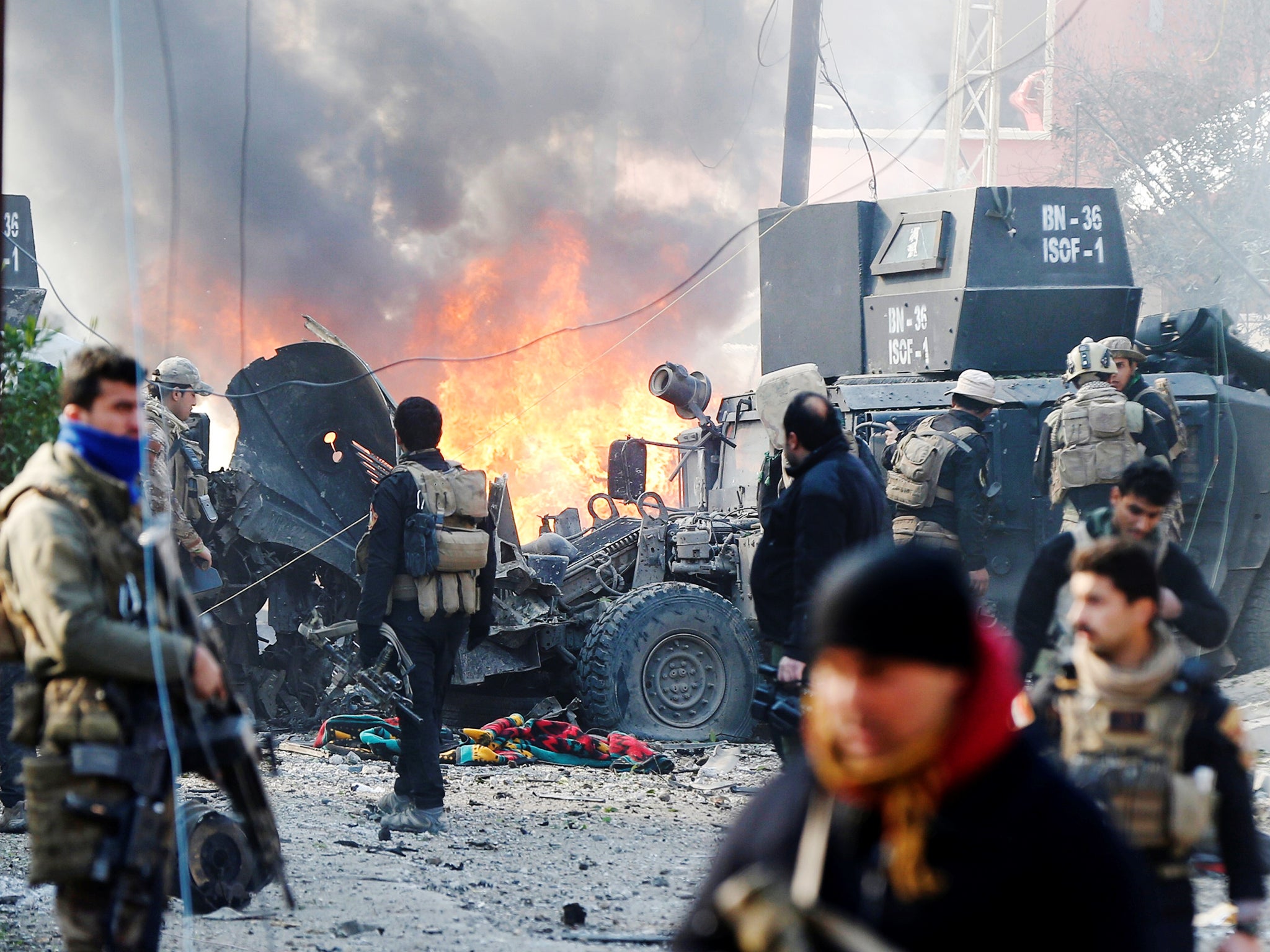Isis claims propaganda 'more powerful than atomic bomb' as group forms strategy for survival
Group recruiting propagandists as it continues to lose territory across Iraq and Syria

Isis’s propaganda will continue to radicalise followers and inspire terror attacks long after the group’s self-declared caliphate has been destroyed, a new report has warned.
The terrorist group is losing swathes of territory in its Iraqi stronghold of Mosul as enemy forces advance on its de-facto capital of Raqqa in Syria, but continues to churn out online magazines, videos and continual updates on its “operations” to followers around the world.
A document called “Media Operative, You Are a Mujahid, Too” that surfaced last year exposes Isis’s strategy for its propagandists in the Middle East and further afield.

Claiming the West is “angered and terrorised by jihadi media”, the authors urge followers to shatter enemy morale.
“Media weapons [can] actually be more potent than atomic bombs” and has “far-reaching potential to change the balance in respect to the war between the Muslims and their enemies,” the 55-page document continues.
It was translated by researchers at King’s College London’s International Centre for the Study of Radicalisation (ICSR) as part of a report on Isis’ “information warfare”.
As well as its notorious execution videos, the group distributes gory battle footage alongside images attempting to depict the idyll of everyday life in the so-called Islamic State.
Footage distributed by Isis’s Amaq news agency in recent days includes releases showing fighting, drone strikes and suicide bombings around the group’s embattled strongholds of Raqqa and al-Bab, as well as devastation allegedly caused by bombing by the US-led coalition, Russian air force and Turkish artillery.
Graphic images of enemy soldiers’ heads and mutilated bodies are broken up with softer releases showing children being rewarded for memorising the Quran, award ceremonies and jihadis giving out food and money to civilians.

Amaq is just one strand of Isis’s propaganda machine, which includes glossy-style magazines published online in multiple languages, video sites, social media channels and countless mirror accounts set up by supporters to thwart authorities’ attempts to take the outlets down.
They frequently succeed, as do a number of anti-Isis hacking collectives, but websites and messaging services invariably pop back up under minimally altered names within a matter of hours.
Charlie Winter, the author of the ICSR report, said there was a growing sense of awareness among Isis propagandists that “things aren’t going well”.
“The situation isn’t sustainable – one day Isis will no longer control a territorially contiguous area of land and if that’s the case they need another means of sustaining morale around the world, to keep themselves relevant and a sense of momentum,” he told The Independent.
“In those circumstances, propaganda will become even more important than it is now, as a way of referring back to the golden age.”
Mr Winter, a senior researcher at the ICSR, said Isis’s probable military defeat in its territories across Syria, Iraq and Libya will not prevent followers continuing to launch insurgencies and terror attacks, as propaganda continues the cycle of radicalisation.
He said the group’s draw lies in its claim to offer an alternative existence for followers under the “Islamic State”, rather than just attacking the status quo.
While Isis has for several years used propaganda to attract fighters to its territories and inspire terror attacks abroad, it is now attempting to recruit jihadi “media operatives” to spread its message.
The instruction manual frames their role in the terms of battle, calling propagandists “unknown soldiers” whose roles must not be “belittled or underestimated”.
“To every media operative brother in the Islamic State, you should know and be convinced of the following fact, [that] the media is a jihad in the way of Allah [and that] you, with your media work, are therefore a mujahid in the way of Allah,” it says.
“It is no exaggeration to say that the media operative is a martyrdom-seeker without a belt.”
The document, written in Arabic, appears to be aimed at militants employed by Isis to film battles on the ground, but was published by the group online last year in an apparent effort to reach volunteers further afield.
“Inciting others to join the jihad is tantamount to engaging in the jihad oneself, as is steering others towards it and opening their eyes to it,” it says.

It offers a three-point recipe for recruits – the presentation of a positive alternative, attacking enemy values and actions, and launching targeted “missiles” to exploit the mainstream media.
The report cautions news organisations against spreading Isis propaganda and becoming “unwitting instruments” of the group and calls for creative solutions for ways to counter the communications.
Despite the group’s dwindling territory and plummeting intake of foreign fighters as leaders are picked off by drone strikes, the research concludes that it is “wrong to imagine a ‘post-Islamic State’ world at this time”.
“The caliphate idea will exist long beyond its proto-state,” it continues. “If compelled to, the group’s true believers will simply retreat into the virtual world, where they will use the vast archive of propaganda assembled by the group over these past few years to keep themselves buoyant with nostalgia.
“In years to come, this resilience will enable it to perpetuate – and perhaps worsen – the terrorist menace it already presents.”
Intelligence agencies, social networks and internet providers around the world are cooperating in efforts to combat material published by Isis and other extremist groups.
The UK is part of the Global Counter Terrorism Forum, which coordinates efforts by governments, security services and charities in 29 countries and the EU to prevent radicalisation.
A spokesperson for the Home Office said the police Counter Terrorism Internet Referral Unit had led to the removal of 250,000 pieces of terror-related material on social media since 2010, working alongside industry and community-based initiatives.
“This Government is taking robust action to tackle online terrorist and extremist propaganda, which can directly influence people who are vulnerable to radicalisation," he added.
“We are working closely with law enforcement agencies and the internet industry and have made significant progress in removing terrorist material hosted here and overseas."
Join our commenting forum
Join thought-provoking conversations, follow other Independent readers and see their replies
Comments